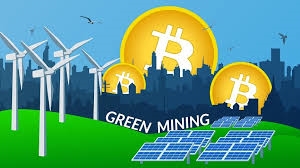Governance and Voting, Gaming and Entertainment, and Energy Sector

Governance and Voting
Governance and Voting systems are significantly enhanced by blockchain technology, offering new ways to ensure security, transparency, and efficiency in decision-making processes.
1. E-Voting
E-Voting involves using electronic systems for casting and recording votes, and blockchain technology provides robust solutions to common challenges in this area.
- Security: Blockchain enhances the security of e-voting by encrypting each vote and recording it on an immutable ledger. This prevents tampering or unauthorized changes, ensuring that the voting process is secure from fraud.
- Transparency: With blockchain, the entire voting process becomes transparent. Authorized participants can view the votes and the tallying process without compromising voter anonymity. This openness helps build trust in the election results.
- Tamper-Proof: The immutable nature of blockchain means that once a vote is entered, it cannot be altered or deleted. This feature ensures that the election results are accurate and resistant to manipulation.

2. Decentralized Autonomous Organizations (DAOs)
Decentralized Autonomous Organizations (DAOs) use blockchain technology to create new models of organizational governance.
- Decentralized Management: DAOs operate through a distributed network rather than relying on a single central authority. Governance decisions are made through consensus mechanisms encoded in smart contracts, allowing all participants to have a say in the management of the organization.
- Blockchain-Based Governance: The rules and decisions of a DAO are managed by smart contracts on the blockchain, which automate and enforce organizational policies. This system ensures that operations are carried out according to predefined rules without requiring a central governing body.
- Transparency and Accountability: Every action, proposal, and voting outcome within a DAO is recorded on the blockchain, providing a transparent and accountable record of governance activities. Members can track all decisions and verify compliance with established procedures.
Gaming and Entertainment
Gaming and Entertainment sectors are experiencing significant changes due to blockchain technology, which introduces new dimensions of digital ownership and interactive experiences.
1. Non-Fungible Tokens (NFTs)
Non-Fungible Tokens (NFTs) are a key innovation in the blockchain space, enabling unique digital assets to be owned and traded.
- Digital Ownership: NFTs represent distinct digital items such as art, music, and in-game assets. Each NFT is unique and verified on the blockchain, granting individuals verifiable ownership of digital creations.
- Provenance and Scarcity: Blockchain technology ensures that the history of each NFT, including its creation and ownership, is permanently recorded. This guarantees the uniqueness and limited availability of digital assets, adding value to collectible items.
- Trade and Monetization: NFTs enable creators to monetize their digital works directly and engage in transactions on various marketplaces. Buyers and sellers can trade NFTs with confidence in their authenticity and ownership history.

2. Blockchain-Based Games
Blockchain-Based Games utilize blockchain technology to enhance gameplay and asset management.
- Decentralized Ownership: Blockchain allows players to truly own in-game assets like characters, items, and land. These assets are represented as tokens on the blockchain and can be traded or sold independently of the game.
- In-Game Economies: Blockchain facilitates the creation of decentralized economies within games, where players can earn and spend cryptocurrency or tokens. This decentralized approach supports more dynamic and player-driven economies.
- Interoperability: Some blockchain games enable assets to be used across multiple games or platforms. This interoperability extends the value and utility of digital items beyond a single game environment.
Energy Sector
Energy Sector applications of blockchain technology focus on improving energy trading and grid management through decentralized systems.
1. Energy Trading
Energy Trading platforms leverage blockchain to enable direct peer-to-peer transactions of energy resources.
- Peer-to-Peer Trading: Blockchain technology supports decentralized trading platforms where individuals and businesses can buy and sell energy directly. Smart contracts automate and verify these transactions, reducing costs and increasing efficiency.
- Transparency and Traceability: Blockchain records every energy transaction transparently, allowing all participants to track energy flows and verify transaction integrity. This transparency helps ensure accurate billing and accountability.
- Efficiency: By removing intermediaries and automating processes, blockchain enhances the efficiency of energy markets, leading to quicker transactions and lower administrative costs.
2. Grid Management
Grid Management benefits from blockchain’s capabilities to improve oversight and operations of energy distribution.
- Real-Time Data: Blockchain provides real-time data on energy consumption and distribution, facilitating better management and coordination of energy grids. This helps balance supply and demand more effectively.
- Decentralized Control: Blockchain supports decentralized control of energy grids, allowing multiple stakeholders to contribute to grid management. This approach can enhance grid resilience and reduce vulnerabilities.
- Smart Contracts: Smart contracts can automate grid operations such as managing energy distribution and coordinating response programs. This automation helps optimize grid performance and operational efficiency.
In summary, governance and voting are enhanced by blockchain through secure e-voting systems and decentralized autonomous organizations (DAOs) that facilitate distributed decision-making. Gaming and entertainment are transformed by Non-Fungible Tokens (NFTs) for digital ownership and blockchain-based games that offer decentralized asset management and in-game economies.
In the energy sector, blockchain improves energy trading through peer-to-peer platforms and enhances grid management with real-time data and decentralized control. Each of these fields illustrates how blockchain technology can revolutionize traditional systems, providing increased security, transparency, and efficiency.